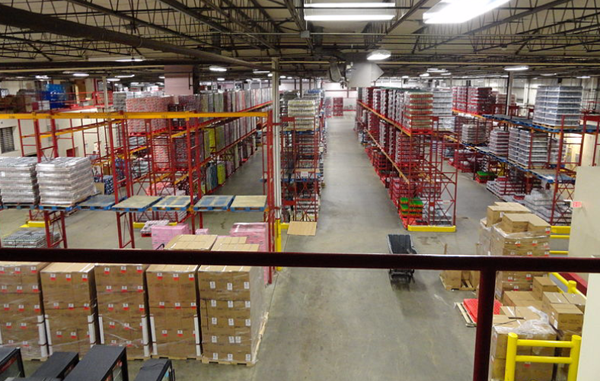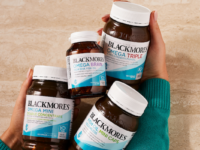 Before even pitching products to retail buyers, it’s important to ensure that your products are retail ready.
Before even pitching products to retail buyers, it’s important to ensure that your products are retail ready.
Do you know what this process fully entails? Being retail ready isn’t just about having a final product. It’s about having all the requirements that retailers need to list them in their stores.
Simply put, retailers will not work suppliers who do not meet the criteria of being retail ready.
Sure, they’re looking for a great, unique product which meets their customer needs. Beyond that, however, they need a supplier who is reliable, retail ready, and one that they can work with in the long term.
Your retail checklist
Below is a topline sense check which outlines the key factors to consider when thinking about being retail ready.
1. Effective and compliant packaging
Compliant packaging needs to meet all applicable Australian standards. Visit www.foodstandards.gov.au for more information and examples for food packaging.
2. Quality assurance plan
Suppliers also need to have a quality assurance plan in place for the manufacturing of products. An example include manufacturing in HACCP, GMP, or TGA approved facilities.
3. Barcodes
Retail products need to have compliant barcodes on all packaging.
4. Distribution plan
You also need to be able to move your retail products with a distributor plan fully in place. These are achieved via third party distributors, warehouses, or direct to store shipping.
5. Continued, scalable product supply
One of the most important areas you must consider is the supply of your retail products. This includes both a sufficient supply of your product and the ability to scale based on demand.
6. Competitive and comprehensive pricing model
Your pricing model needs to remain robust and take every aspect of the productions and distribution process into consideration. Factors you should include in your model include the following:
- Distributor margins
- Retailer rebates
- Marketing support
7. Instore support of your product
Store level merchandising support services ensure that your product is well stocked and positioned for a successful trading environment.
8. Consumer marketing plan
Your consumer marketing plan will help you with better brand awareness and pull through for your product. Make sure this is in place to achieve the best sales results.
9. Trade level marketing plan
Beyond consumer level marketing, you also need to set up marketing within the retail trade environment. These include instore sampling, price promotions, catalogue support, and similar initiatives.
10. Point of sale material for instore support
Additionally, you need information and other materials at the point of sale sale within retail outlets. This instore information will become vital to your product’s overall sales potential.
11. Consumer/trade enquiry system
People are going to want to know more about what your retail product is all about. You should set up an infrastructure to help field both consumer and trade-based enquiries.
12. Website and online presence
Finally, you absolutely must build and support an active and fully functional website. This includes other online activities such as fielding enquiries, making a social media appearance, etc.
Retail Ready: Spotlight on barcodes and GS1 standards
As mentioned in the above section, your retail product will need to have a barcode on it for inventory and management.
For example, a number of the retailers that RangeMe works with require that suppliers are GS1 compliant and have met the standards.
RangeMe is a GS1 Australia Alliance Partner. GS1 is part of a global barcoding and numbering organisation that licences authorised barcode numbers for Australian businesses. Businesses can then put these barcode numbers on their products to sell them locally and globally.
To be licensed to use a GS1 barcode number, you must become a member of GS1 Australia. Having GS1 Barcodes ensures that each barcode number you are licensed to use is unique. No other businesses can use your barcode numbers or barcodes on their products.
Major retailers in Australia require their suppliers to have a registered and compliant barcodes on their products. In almost all cases, this is the standard you should demand for your retail products. More information on this can be found here.
Getting help for your retail readiness
All the above steps may seem overwhelming to a retail product manufacturer. The good news is that you have a wide range of resources to help you successfully achieve this process.
There are a number of well respected periphery service businesses that can assist smaller businesses with support services to aid retail readiness. These support businesses include companies such as Trade Partners who assist with account and relationship management for the Australian grocery sector. They also look after the sub $50 million turnover businesses that offer uniqueness about their proposition.
Additionally, instore sales and merchandising companies such as Smollan Trade Partners (STP) can also provide outsourced, highly skilled, and trained teams.
These teams are comprised of merchandisers, promoters, sales teams, and companies who assist in the back end operations. They can help retailers with a variety of objectives:
- Demand planning
- Warehousing
- Logistics
- Finance
- Marketing
- Customer service
Companies such as CTD In the Bag assist in the back end operations including for example demand planning, warehousing, logistics, finance, marketing, and customer service.
Working with thousands of retail suppliers here at RangeMe, we work closely with suppliers to educate them on what it means to be retail ready.
A recent research study with leading retail buyers found that 78 per cent of the buyers surveyed were receiving incomplete information to make a ranging decision.
RangeMe’s supplier submission forms have been developed by buyers and have all the key information that the buyer needs to see to ensure the supplier is retail ready.
Additionally, our customer success manager works directly with all our suppliers to ensure their submissions to buyers are optimal.
Nicky Jackson is CEO of RangeMe, an online marketplace connecting buyers and suppliers. Having spent more than a decade working at blue chip FMCG firms launching products to market, Jackson has helped thousands of suppliers pitch their products to leading retailer buyers throughout Australia.
Contact RangeMe at info@rangeme.com.au or on Twitter at @RANGE_ME.
















